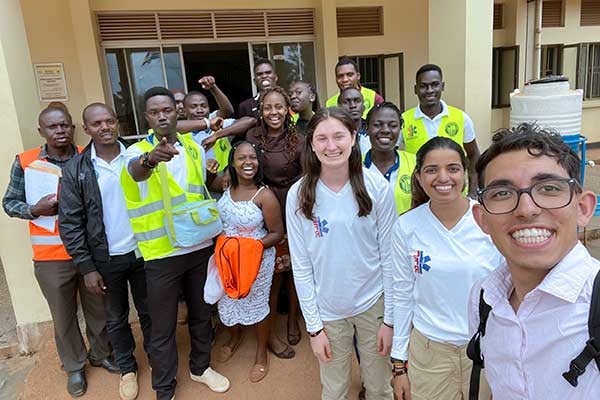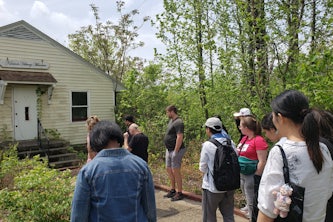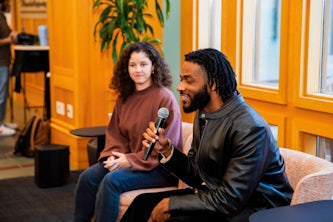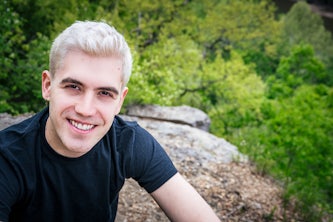Lessons learned in Uganda
Members of LFR International recently went to Mukono, Uganda to partner with local organizations to improve access to emergency services in the community

Members of LFR International spent five weeks in Mukono, Uganda, partnering with Vision for Trauma Care in Africa (VTCA) to improve access to emergency services in the city. This is an abridged version of a report written by Haleigh Pine, a rising junior majoring in biomedical engineering, sharing the group’s experiences in Uganda. Amber Batra, who earned a bachelor's degree in cognitive neuroscience in 2022, and Kyrillos Ayoub, a rising senior majoring in neuroscience, were also integral to the mission. You can read more about their work on the organization’s blog.
The first week of our trip to Mukono included adjusting to our new surroundings and preparing the logistics for our training. During this time, we administered a survey to hospitals and clinics to assess the baseline level of prehospital care in the area and worked to find the materials we needed for our first-aid kits.
In week two, we began training VTCA members in our Level 1 basic first-responder curriculum. We have developed a “trainer of trainers” (TOT) model, in which we train local trainers to expand the sustainability of future programs. Weeks three and four were spent training motorcycle taxi drivers in this Level 1 curriculum.
During week five, we piloted our new Level 2 advanced responder curriculum. This course reflects progress toward creating more advanced prehospital care systems in low- and middle-income countries. The last week involved wrapping up our partnerships, having follow-up meetings with government officials to discuss funding and sustainability, and spending time with all our new friends.
I could try to describe how rewarding it was to be able to help this community and know how our impact will spread, but a better representation is from how many times our VTCA colleagues would tell us, “Thank you for choosing Mukono out of all places you could have gone.” It makes you feel small but simultaneously significant in the world; it's a reminder of how many people live similarly to our friends and could benefit from our work.
It really alters my world perception as I contend with missing these people who I didn’t even know existed seven weeks ago. As we all return to our normal lives with only our work as tangible proof of our time in Mukono, I hope to remember their kindness, friendship and dedication.
This trip has benefitted my education at the professional level by improving communication abilities with coworkers, trainees and patients. We used engineering principles to find the most efficient and cheapest way for a certain outcome, often having to adapt on the spot and be extra resourceful. This gives me a new perspective on emergency medicine that can better inform my care as a physician.
More importantly, it greatly increased my cultural sensitivity and made me reflect on all the privileges in the United States. Between watching a surgery performed with limited resources and seeing the living and financial situations of all our friends, I have an improved understanding of how a patient’s socioeconomic, racial or ethnic background can affect many facets of their health. These skills in cultural competence will be applied to my future experiences with treating populations different from me.
LFR (Lay First Responders) International trains community members of resource-limited settings in basic emergency care to create locally driven, scalable emergency medical services. It was founded in 2018 by Washington University in St. Louis alumni Zach Eisner, who earned a bachelor’s degree in biomedical engineering from McKelvey Engineering in 2021, and Peter Delaney, who earned a bachelor’s degree in global health & environment in anthropology from the College of Arts & Sciences in 2018.



